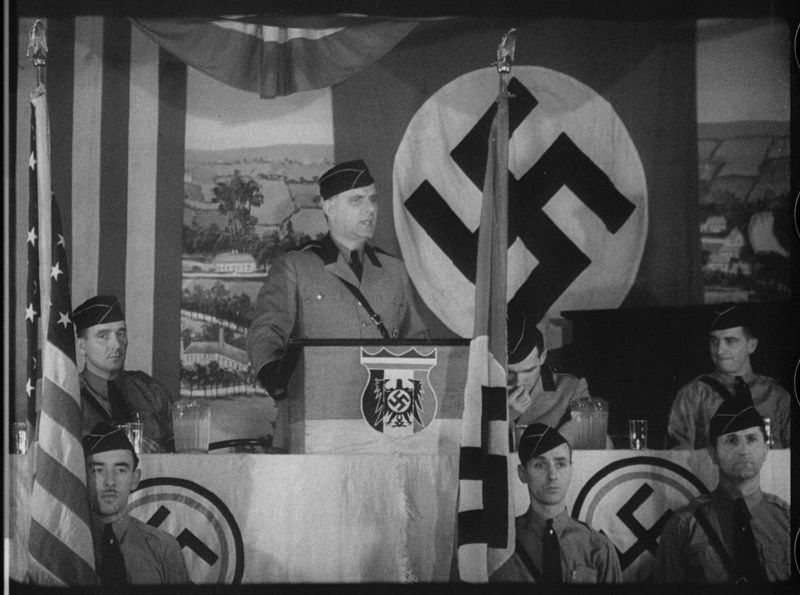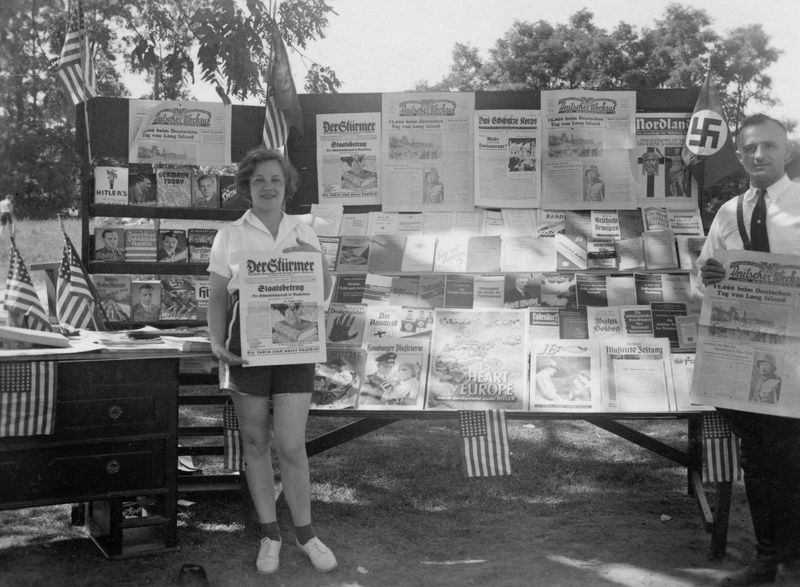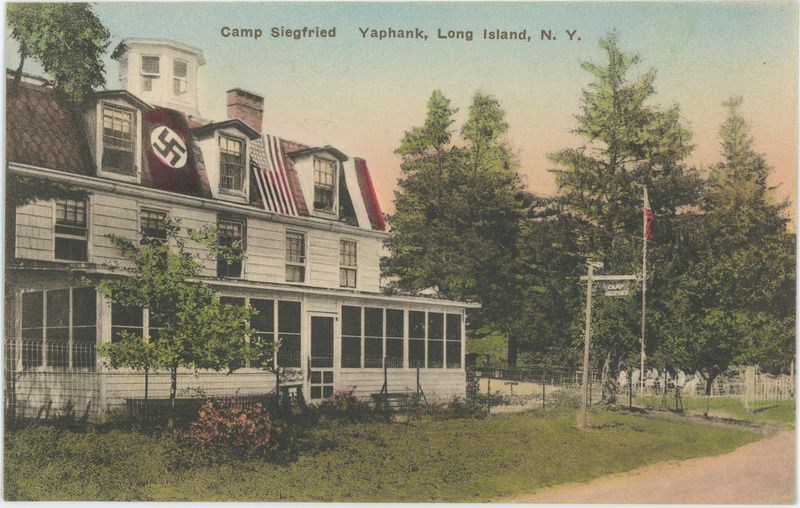

“What would George Washington think and do if he were alive today?” Fritz Kuhn asked a crowd of more than 20,000 pro-Nazi supporters at Madison Square Garden on February 20, 1939. The rally was meant to bolster support for The German American Bund, an organization, led by Kuhn, that believed in a racially “pure” America. In the new American Experience documentary Nazi Town, USA, premiering Tuesday, January 23, historians explore the rise and fall of the Bund and take viewers inside pro-Nazi events like the rally at MSG, a pro-Nazi community in Yaphank, Long Island, and pro-Nazi children’s summer camps in New York and New Jersey. Watch an exclusive clip on the MSG rally below!
The German American Bund emerged in the 1930s and took advantage of racist sentiments already present in American society along with a general dissatisfaction with the status quo. In the 1930s, Americans were faced with the Great Depression, antisemitism and racial segregation were rampant, and citizens were fearful of the rising threat of communism. At the time, American democracy seemed to be failing and fascism appeared to be a valid alternative.
“We are decidedly not preaching un-Americanism or anything basically new,” Bund leader Fritz Kuhn told a crowd, “We have an Asiatic exclusion act, Jim Crow laws, and a complicated system of immigration laws, differentiating even between the various white people. It has then always been very much American.” The Bund pushed this idea of what historian Steven Ross calls “star-spangled fascism,” blending American symbols and ideals with the symbols and ideals of fascism and Nazism.

The Bund was headquartered in the Manhattan neighborhood of Yorkville on the Upper East Side, an area that was home to German immigrants, shops, and beer halls. Many of the beer halls were owned and operated by the Bund, a way they could keep an eye on members. The Bund’s presence in New York City was particularly antagonizing to the city’s large Jewish community.
While the national headquarters were in New York, the Bund had chapters nationwide. At its height, there were 100,000 members. To ensure the continued growth of their ideas, the Bund looked to children.

Across America, the Bund set up youth summer camps. Some of the largest were Camp Nordland in New Jersey and Camp Siegfried in Long Island. There was a special direct train from Penn Station that took guests to Camp Siegfried and for the opening of Camp Nordland, more than 10,000 people were in attendance. Video footage of these camps shows children engaging in seemingly normal summer activities, jumping into lakes, having sing-a-longs, and hiking in the woods. However, while these scenes appear normal on the surface, they were a way to indoctrinate children.
The Bund went even further to establish its hold on American citizens. The German American Settlement League was established to create planned communities for German-American families. The most successful of these communities was created in Yaphank, Long Island.

Called German Gardens, the community had streets named after prominent Nazis including Adolf Hitler, Goering, and Goebbels. There were race restrictions that determined who could own a house in the community. While much of the most egregious nods to its former pro-Nazi sentiments have been erased, there are still many physical remnants of German Gardens that exist today. Learn more about the town and what it’s like now, here.
The film tracks the birth, evolution, and eventual downfall of the Bund in New York City and beyond. “There’s a resonance in the film with today’s fractured times and I hope the story can serve as a reminder of both the fragility — and resilience — of American democracy,” says director Peter Yost.
Produced, directed, and written by Peter Yost, produced by Edna Alburquerque, and executive produced by Cameo George, Nazi Town, USA premieres on AMERICAN EXPERIENCE on Tuesday, January 23, 2024, 9:00-10:00 p.m. ET on PBS (check local listings), PBS.org and the PBS App.
Next, check out This Former Nazi Neighborhood on Long Island with Adolf Hitler Street Still Exist and The 1933 Rally Against Hitler

